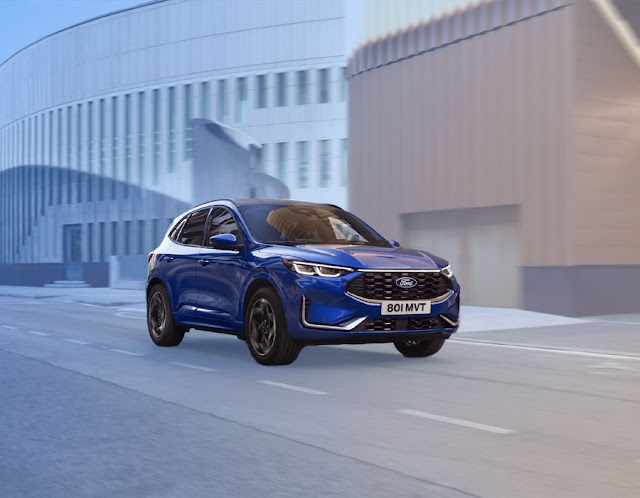The EU grants carmakers three extra years to meet CO2 targets without fines, easing pressure on the struggling industry amid competition from China and the US.
 |
| EU Commission grants automakers a three-year compliance period for CO2 targets, aiming to balance climate goals with industry stability. Image Courtesy: Ford Media |
Brussels, Belgium – March 4, 2025:
The European Union has granted struggling carmakers a three-year extension to meet 2025 CO2 reduction targets without facing penalties, European Commission President Ursula von der Leyen announced on Monday. The move, aimed at easing pressure on the continent’s auto industry, comes as manufacturers grapple with factory closures and growing competition from Chinese and US electric vehicle makers, reads a DS post.
“There’s a clear demand for more flexibility on CO2 targets,” von der Leyen told reporters. “Instead of annual compliance, companies will get three years.” She emphasized that carmakers must still meet the same overall targets but will have greater leeway in achieving them.
EU industry chief Stephane Séjourné, who advocated for the extension, welcomed the decision. “We will not penalize the industry that we must help. In effect, the good students will be able to capitalize on their efforts, those who are behind will have more time,” he said.
Industry sources say compliance will be assessed based on average emissions over the period 2025-2027. This adjustment is expected to provide relief to major European automakers, including Volkswagen, BMW, and Mercedes-Benz, whose shares rose following the announcement.
Meeting the targets largely depends on increasing sales of electric vehicles—an area where European manufacturers lag behind competitors from China and the US. Automakers had warned that strict enforcement of 2025 limits could result in fines totaling up to €15 billion ($15.7 billion).
The proposal still requires approval from EU member states and the European Parliament, but it has already garnered support from France, Germany, and Italy, which previously opposed the penalties. The decision is part of a broader EU strategy to protect the automotive sector, which employs 13 million people and contributes roughly 7% of Europe’s GDP.
Von der Leyen is set to unveil an “action plan” for the auto industry on Wednesday, following multiple discussions with industry leaders on how to bolster competitiveness. The EU has been seeking ways to prevent European carmakers from falling further behind in the race toward electric mobility.
However, environmental groups criticized the decision, calling it a setback for clean transport policies. The advocacy group Transport & Environment condemned the move as an “unprecedented gift to Europe’s car industry in the middle of a compliance year.”
“Weakening the EU clean car rules rewards laggards and does little for Europe’s car industry except to leave it further behind China on electric vehicles,” said William Todts, the group’s executive director. “The EU risks creating very damaging uncertainty about the electric vehicle transition in Europe.”
Despite the pushback, the EU remains committed to its broader climate goals, including phasing out new combustion-engine vehicle sales by 2035. The coming months will be crucial in shaping the future regulatory landscape for European carmakers as they navigate economic challenges and the transition to cleaner mobility.